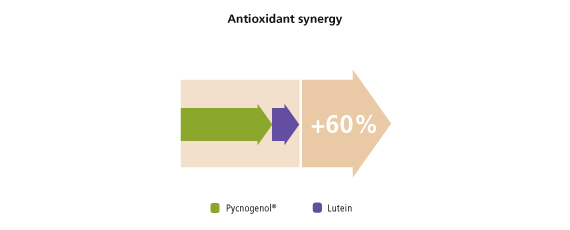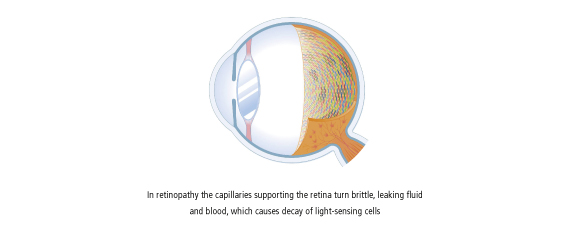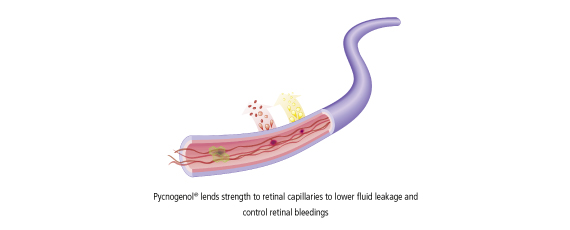Eyes & Vision

Eyes & Vision

"An increasing number of people will be at risk of visual impairment as populations grow and age, and potentially have blinding conditions, such as age-related macular degeneration, diabetic retinopathy and glaucoma"
"Diabetic retinopathy is responsible for 4,8% of 37 million cases of blindness throughout the world"
Data source : Prevention of blindness from diabetes mellitus – 2005 – WHO
The natural ageing process affects the sharpness of vision, everyone experiences decreased accommodation of the lens to see clearly at near at higher age.
Apart from gradual stiffening, the lens will develop opacities. The light sensing cones and rods may also lose function with increasing age. The progression may occur more rapidly in some individuals than others. In addition to hereditary factors, lifestyle and dietary factors define the speed with which oxidative stress and metabolic factors cause cumulative damage to ocular tissues.
The retina is the tissue with the highest metabolic turn-over in the body, with the consequence of generating the highest oxidative stress. Furthermore, ocular tissues are exposed to energetic UV rays which generate reactive oxygen species. Metabolic conditions such as diabetes involve a pathologic oxidative stress known to deprive antioxidant vitamins.
The eye is characterised by a unique aqueous-lipid barrier which requires water-soluble antioxidants for the aqueous phase and lipid soluble antioxidants, predominantly carotenoids, for protection of the polyunsaturated fatty acid-rich retina. Five clinical studies with more than 1200 participants have demonstrated that Pycnogenol® improves the vascular system of the eyes to preserve healthy eyesight.
Under laboratory conditions Lutein and Pycnogenol® were investigated for their antioxidant protective effect of the retina. Further to their potent individual antioxidant contributions the combination of Lutein and Pycnogenol® showed additional synergistic protection of retinal lipids from oxidation by 60%.

Further to the integrity and functioning of light sensing cells the condition of the vascular system supporting the retina plays a pivotal role for healthy vision.
Cardiovascular risk factors, predominantly hyperglycaemia, involve serious harm to retinal capillaries. In diabetes the disorder retinopathy involves leakage of retinal capillaries, releasing excess plasma and causing spot-like bleedings. Lipid constituents of plasma may remain in the retina as insoluble «hard» exudates. Retinopathy is considered a «stealth disease» as it progresses unnoticed and symptom-free while it leads to gradual, largely irreversible loss of vision. Left untreated retinopathy may progress to the proliferative stage which is characterised by growth of new capillaries to compensate for the lack of oxygen in the retina. These vessels grow uncontrolled and interfere with normal eye vision and, furthermore, tend to cause severe bleedings. The proliferative stage of retinopathy may lead to complete blindness.

Pycnogenol® strengthens retinal capillaries to helps control leakage of fluids and blood into the retina. In individuals with early stage retinopathy Pycnogenol® was shown to stop leakage and improve retinal perfusion with corresponding significant restoration of vision.
